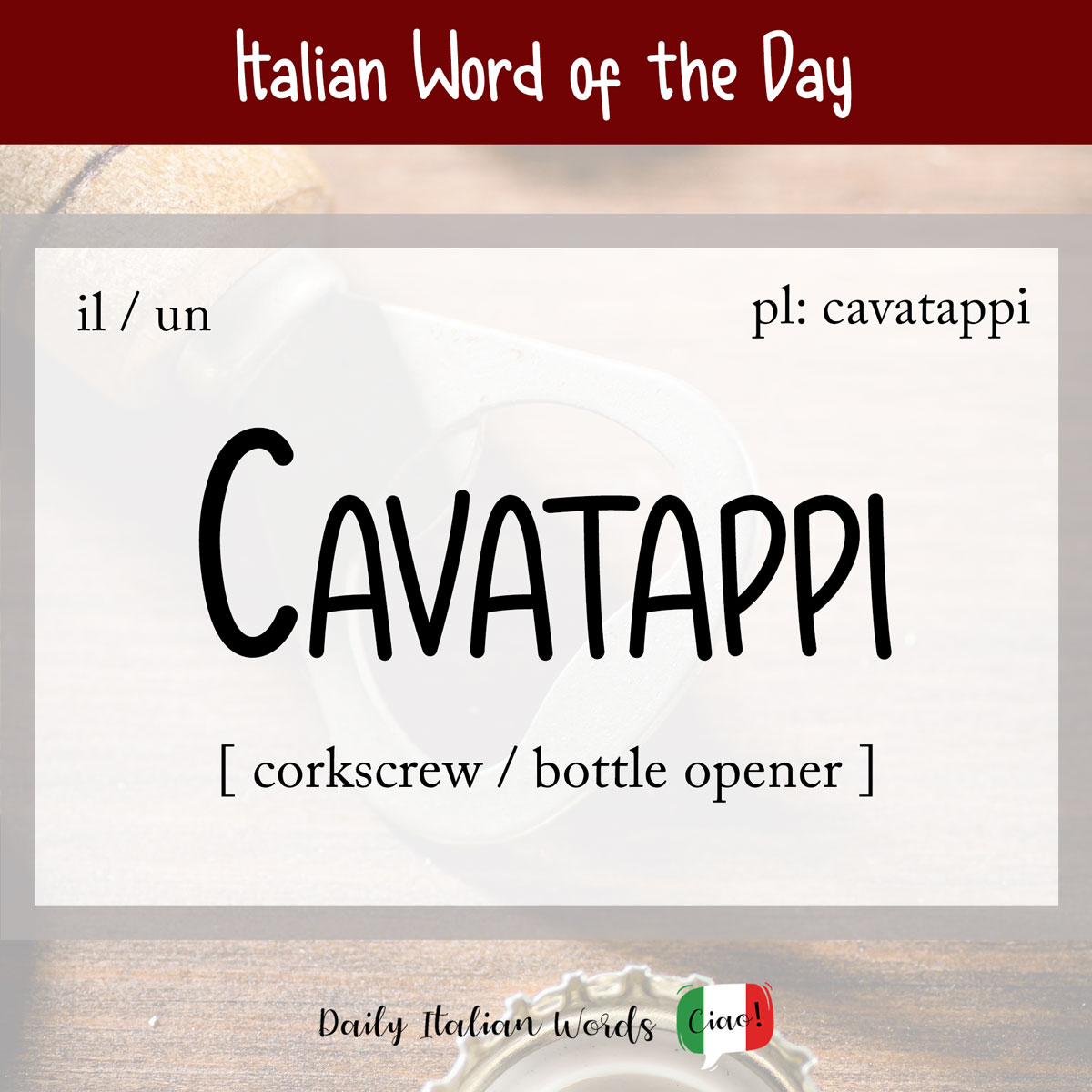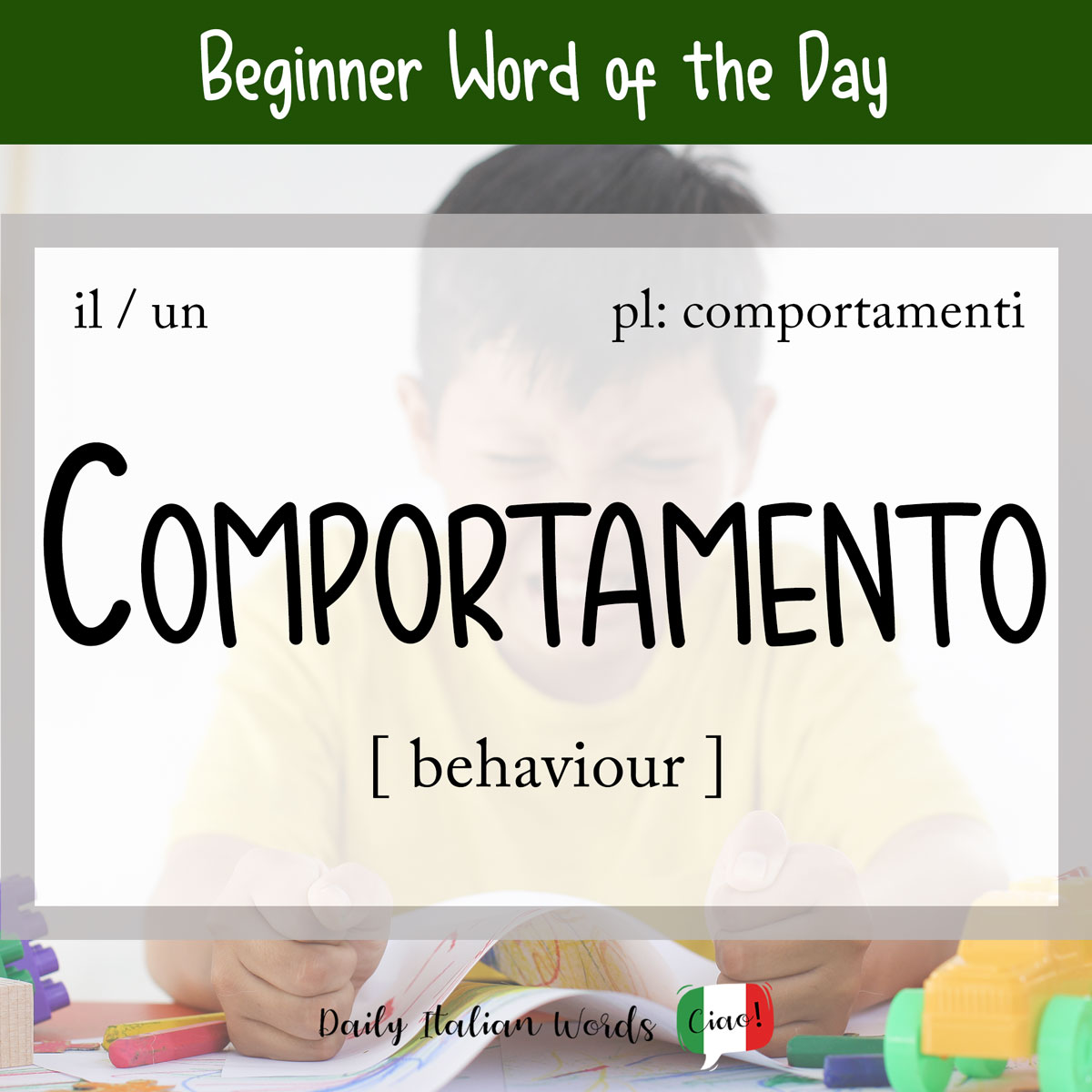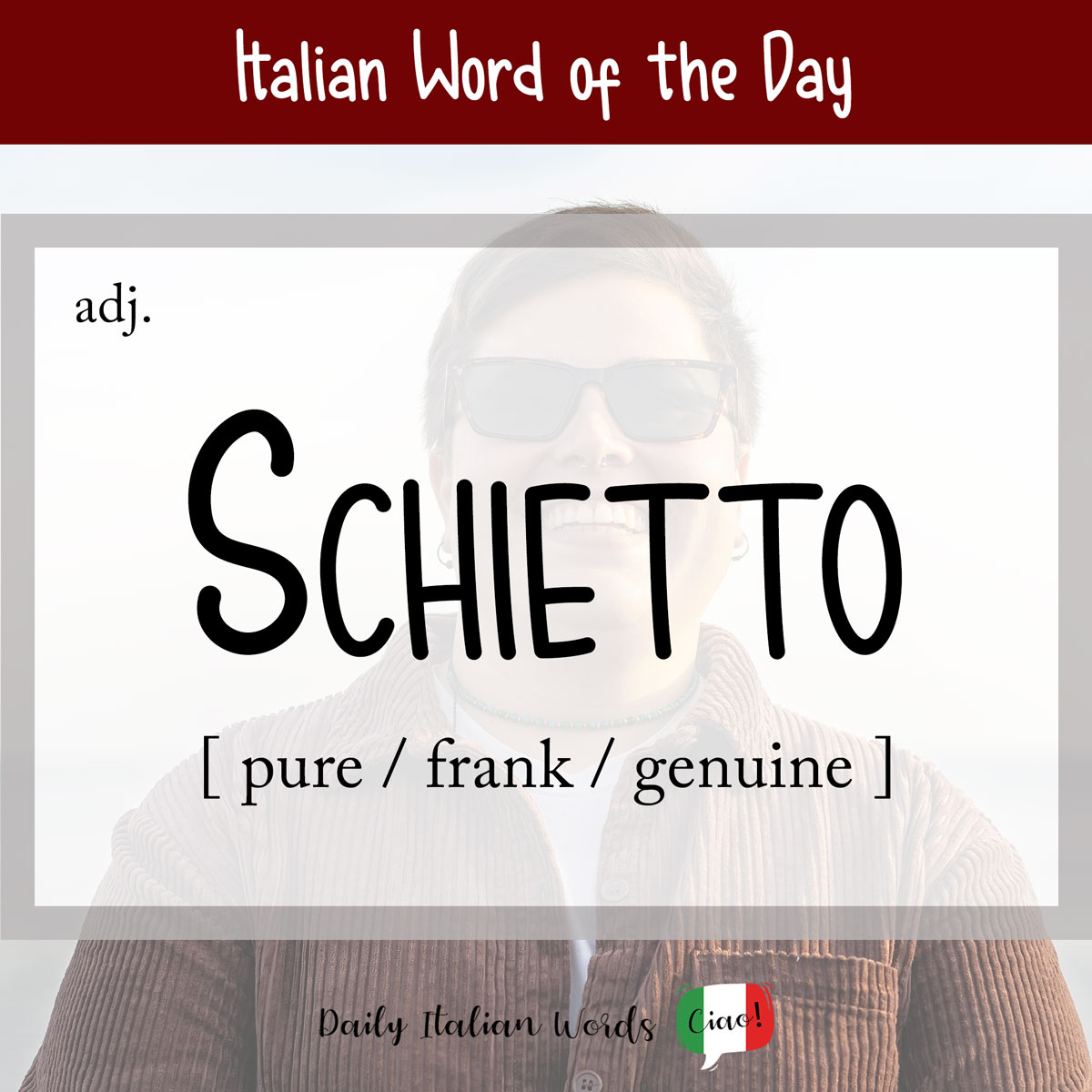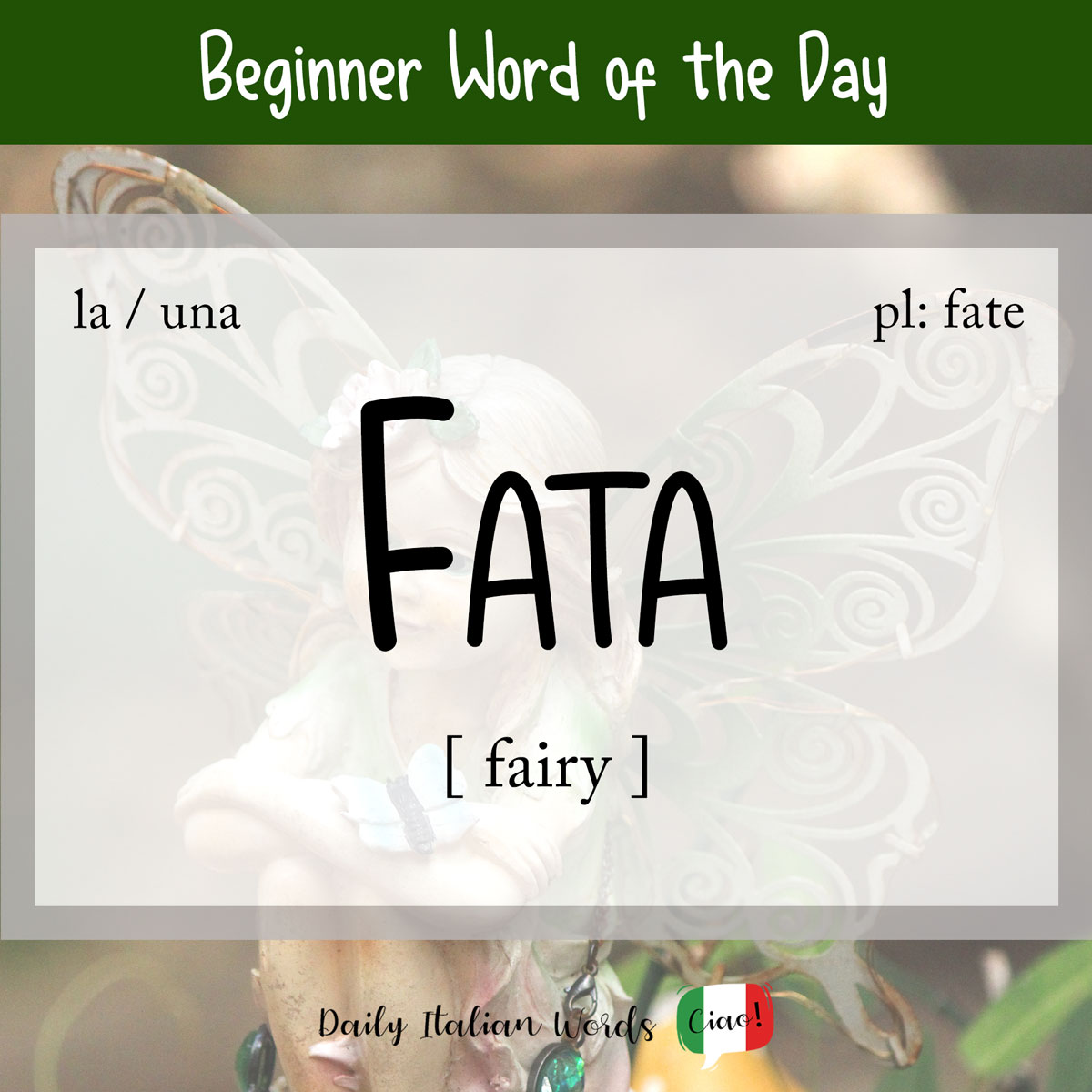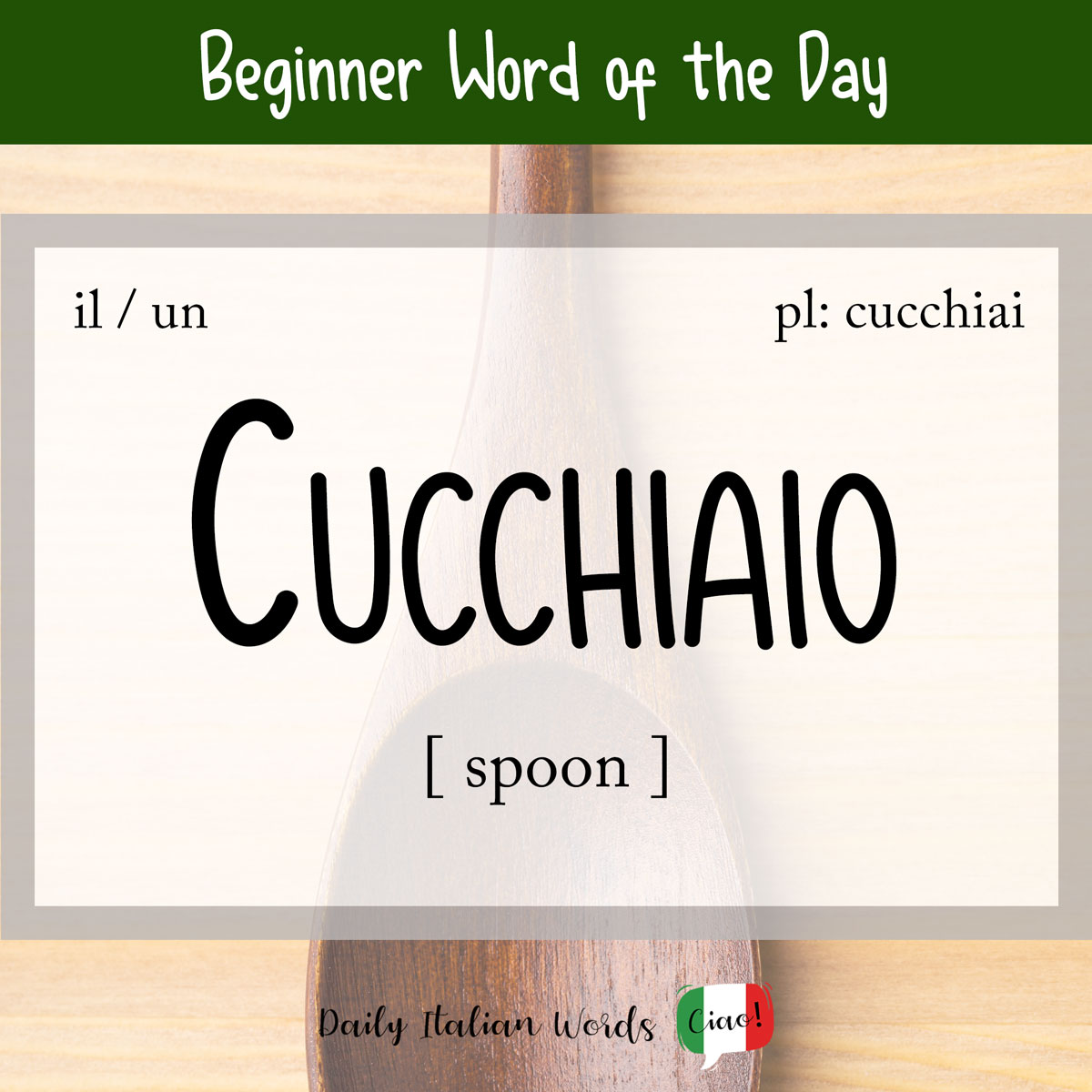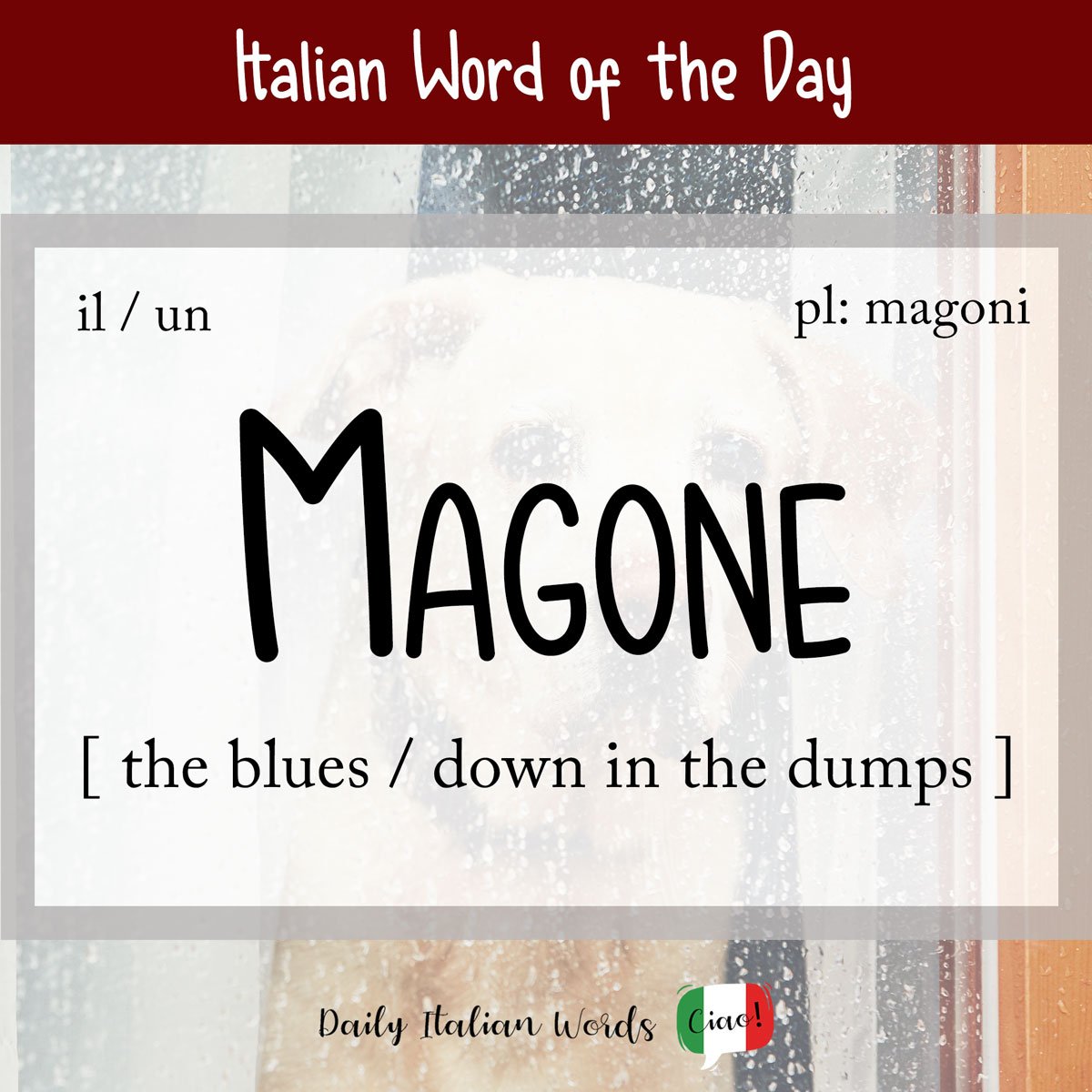Italian Word of the Day: Cavatappi (corkscrew / bottle opener)
The Italian word for a corkscrew or bottle opener is cavatappi. It is a compilation of the verb cavare (to remove, to extract) and tappo (cork, stopper). cavatappi corkscrew / bottle opener Cavatappi is an invariable masculine noun, which means that it keeps the same form in the singular and plural. In fact, all nouns …

